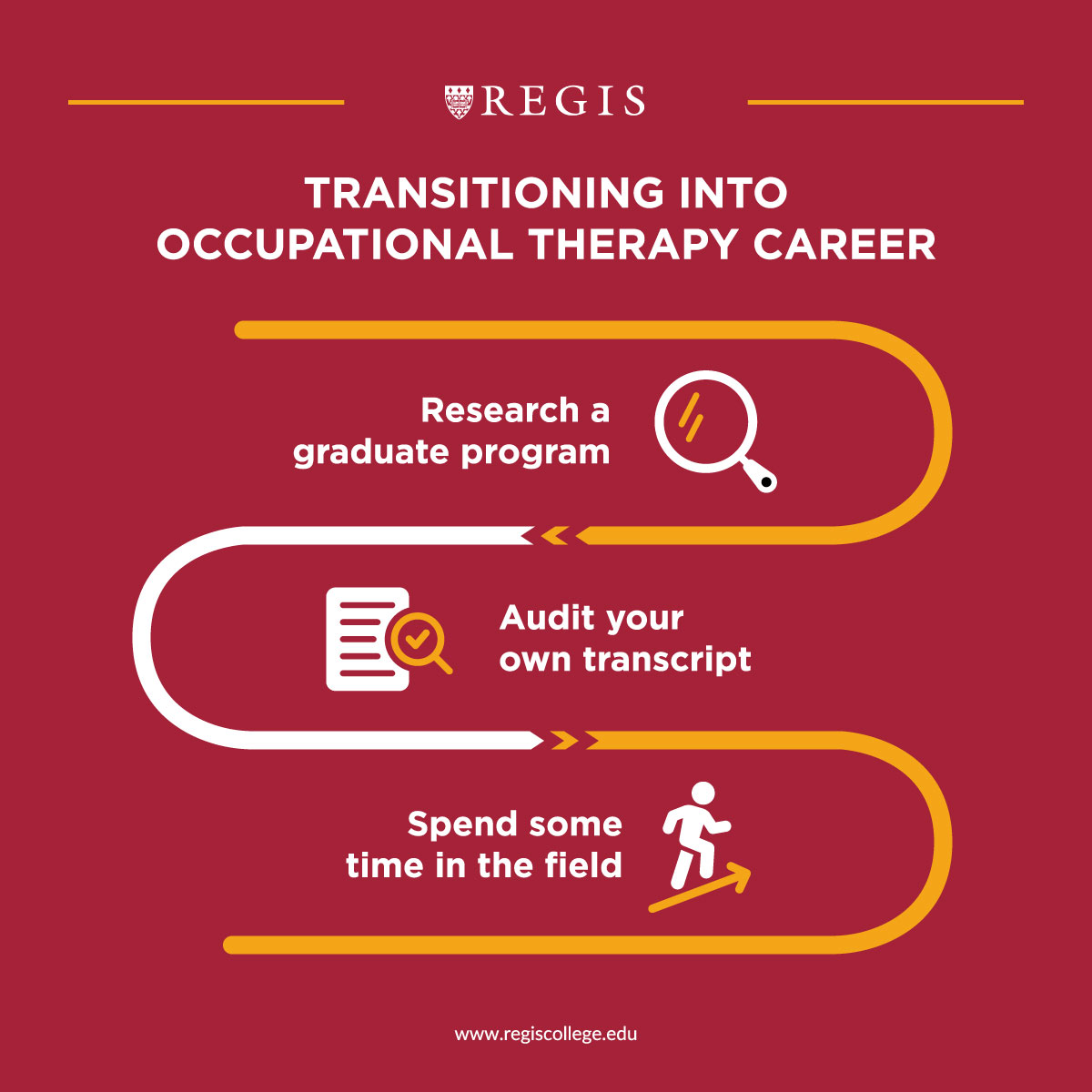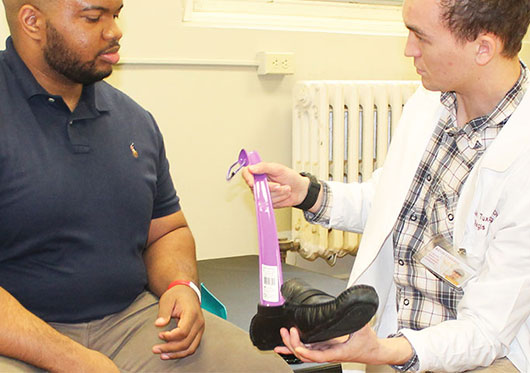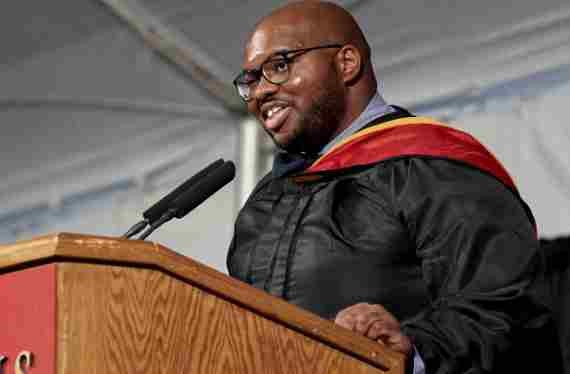There are many reasons that people choose to go into occupational therapy as a career.
For some, it’s the high average salary ($96,370 per year) enjoyed by the profession. For others, it’s the fact that the field is seeing increased demand and job security as more and more of the population ages and needs additional support. And for others still, it’s because they are drawn to the profound impact they can have on their patients' lives.
Whatever your reason for considering a career in OT, you’re in good company. But you may be wondering: How can I become an occupational therapist? What kind of degree or certification do I need to actually go into occupational therapy?
Ultimately, in order to become an occupational therapist, you’ll need to meet a number of requirements.
These occupational therapist requirements vary in some regards depending on the state in which you are seeking to be licensed, but all states require you to pass the national exam that is administered by the National Board for Certification in Occupational Therapy (NBCOT). In order to sit for this exam, you’ll need to graduate from an accredited occupational therapy graduate program.
This means all occupational therapists must earn at least a Master of Science (MS) in Occupational Therapy.
While that answer is pretty straightforward, it raises a number of other questions. What undergraduate or bachelor’s degrees will best prepare you for pursuing a master’s degree in occupational therapy?
Bachelor’s Degrees for Occupational Therapy
There isn’t any particular undergraduate degree that you must earn before earning your MS in OT; nearly any bachelor’s degree can suffice. Our MS in Occupational Therapy program, for example, accepts applicants from all academic backgrounds—from art majors to chemistry majors—so long as certain prerequisite coursework is complete.
That being said, there are certain bachelor’s degrees and fields of study that can make transitioning into an occupational therapy career easier in the long run due to their focus on particular subjects. We explore some of these undergraduate degrees below.
1. Occupational Therapy or Pre-Occupational Therapy
If you know for certain as an undergraduate student that you’d like to eventually pursue your master’s degree in occupational therapy, earning a bachelor’s degree in occupational therapy or a related degree on a pre-occupational therapy tract can be a wise choice.
These programs specifically prepare students with the skills needed to excel in OT and the challenging academic coursework of a master’s degree. Additionally, many are tied to graduate degree programs, potentially making it easier for students to be accepted into (and complete) an advanced degree.
2. Kinesiology and Exercise Science/Physiology
Kinesiology and exercise science (or physiology) is the study of human movement and the body’s natural physiological adaptations to exercise. By earning such a degree, students are typically prepared to:
- Demonstrate a knowledge of human anatomy, physiology, development, behavior, and movement
- Analyze and evaluate research related to human nutrition, health, and exercise
- Conduct health, fitness, and performance assessments on individuals and use this information to develop exercise programs for those individuals
As such, it’s an obvious choice for those who are interested in potentially pursuing a career in occupational therapy.
3. Psychology
While psychology may seem like an odd choice of major to help somebody prepare for earning a master’s degree in occupational therapy, it is in fact quite a common choice.
Occupational therapy does, after all, require an individual to work closely with clients and patients, many of whom may be recovering from serious illness or disability. By the very nature of the work, this requires occupational therapists to be familiar with mental health conditions, concepts, and principles of recovery so that they can adequately support their clients as they progress through the treatment and strive to embrace a self-directed, meaningful life.
4. Biology
Biology is sometimes described as a “gateway” major, because it introduces students to information, concepts, and skills that can be leveraged when pursuing a variety of advanced degrees, including occupational therapy.
Coursework will lay a solid foundation in molecular, cell, and human biology, while laboratory work prepares students for the advanced research that will be expected of them as they earn their master’s degree. Biology majors who think that they would like to pursue a master’s degree in occupational therapy are encouraged to take as many human- or patient-focused courses as possible, in order to better prepare them for the unique challenges of working with patients.
What to Do If You Earned a Non-Related Bachelor’s Degree
While earning one of the undergraduate degrees listed above brings with it obvious benefits for someone interested in becoming an occupational therapist, doing so is far from the only path to a career in occupational therapy. The truth is, many people decide to become an occupational therapist after they’ve already earned a bachelor’s degree, and potentially even after they’ve spent years in another industry or career.
If this resonates with you, follow these steps to smoothly transition into a rewarding career by earning your occupational therapy degree:
- Research a graduate program that you think you’d like to attend, with a goal of understanding any admission requirements or prerequisites.
- Audit your own transcript to identify any gaps in your coursework. Speak to an admission counselor to determine your best path forward in earning any credits that you lack.
- Spend some time in the field by speaking with or potentially even shadowing an occupational therapist on the job. This can help you to decide (before you begin applying to programs) whether OT is the right career for you, and can give you some insight into the day-to-day duties that occupational therapists perform.

Is a Master's in Occupational Therapy Worth It?
Pursuing a Master's degree in Occupational Therapy (OT) is justified by the significant advantages it offers. This degree not only prepares you to meet the necessary licensing requirements for practice, ensuring that you are well-equipped with the latest skills and knowledge, but it also increases your potential for higher earnings with the potential to increase with specialization and experience.
Additionally, occupational therapy provides significant flexibility in work environments and specialization areas, enabling you to customize your career to align with your interests and lifestyle preferences. Being involved in the community through this profession can be very fulfilling, making the educational investment worthwhile for those interested in service-oriented careers.
Starting Your Career In Occupational Therapy
Considering a career in occupational therapy means combining professional fulfillment with the opportunity to make a significant impact on the lives of others. Pursuing a Master’s degree in OT is an investment in a future where you can contribute to the well-being and independence of individuals facing physical, emotional, and cognitive challenges.
Are you passionate about making a positive impact in the lives of others? If so, occupational therapy might be the right career for you. Consider earning a master’s degree in occupational therapy to become a registered OT and make a difference.








